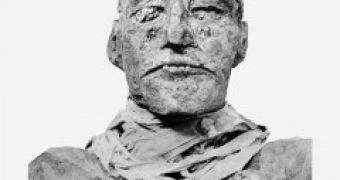Ramses III was one of Egypt's last great pharaohs, and most ancient documents refer to him as a “Great God.”
However, this leader owes very little of his popularity to his military successes, and quite a lot of it to the fact that he died at 65 years of age in circumstances which have remained unknown for over 3,000 years.
A team of archaeologists now claims that, after carefully investigating the pharaoh's mummy, they have managed to piece together a theory that uses concrete facts and hard evidence to explain how and why this ancient Egyptian leader died.
To cut a long story short, CT scans revealed that Ramses III had his throat slit by an assassin, and several archaeologists agree that his wife and his son were the ones to plan and execute this gruesome murder. Huffington Post quotes paleopathologist Albert Zink, presently working with the EURAC Institute for Mummies and the Iceman in Italy, who made a case of how, “I have almost no doubt about the fact that Ramses III was killed by this cut in his throat.”
“The cut is so very deep and quite large, it really goes down almost down to the bone (spine). It must have been a lethal injury,” this specialist went on to add.
The experts who looked into this issue base their theory that Ramses III was killed by his wife and his son (and that the latter was the one to deliver the blow) on the fact that, as DNA analyses have shown, a young male buried together with the pharaoh is most likely his son, Pentawere.
Since this young man was buried together with a goat skin and died as a result of strangulation (this being the way in which ancient Egyptians used to treat assassins), odds are that Pentawere was made to pay for his deed by people who looked up to Ramses III.
“The unusual mummification process of unknown man E, including the ritually impure use of a goat skin to cover the body, could be interpreted as evidence for a punishment in the form of a non-royal burial procedure.”
“Together with the genetically proven family relationship with Ramesses III, we therefore believe that unknown man E is a good candidate for Pentawere,” reads the study, which was published in the British Medical Journal this past Tuesday.

 14 DAY TRIAL //
14 DAY TRIAL //